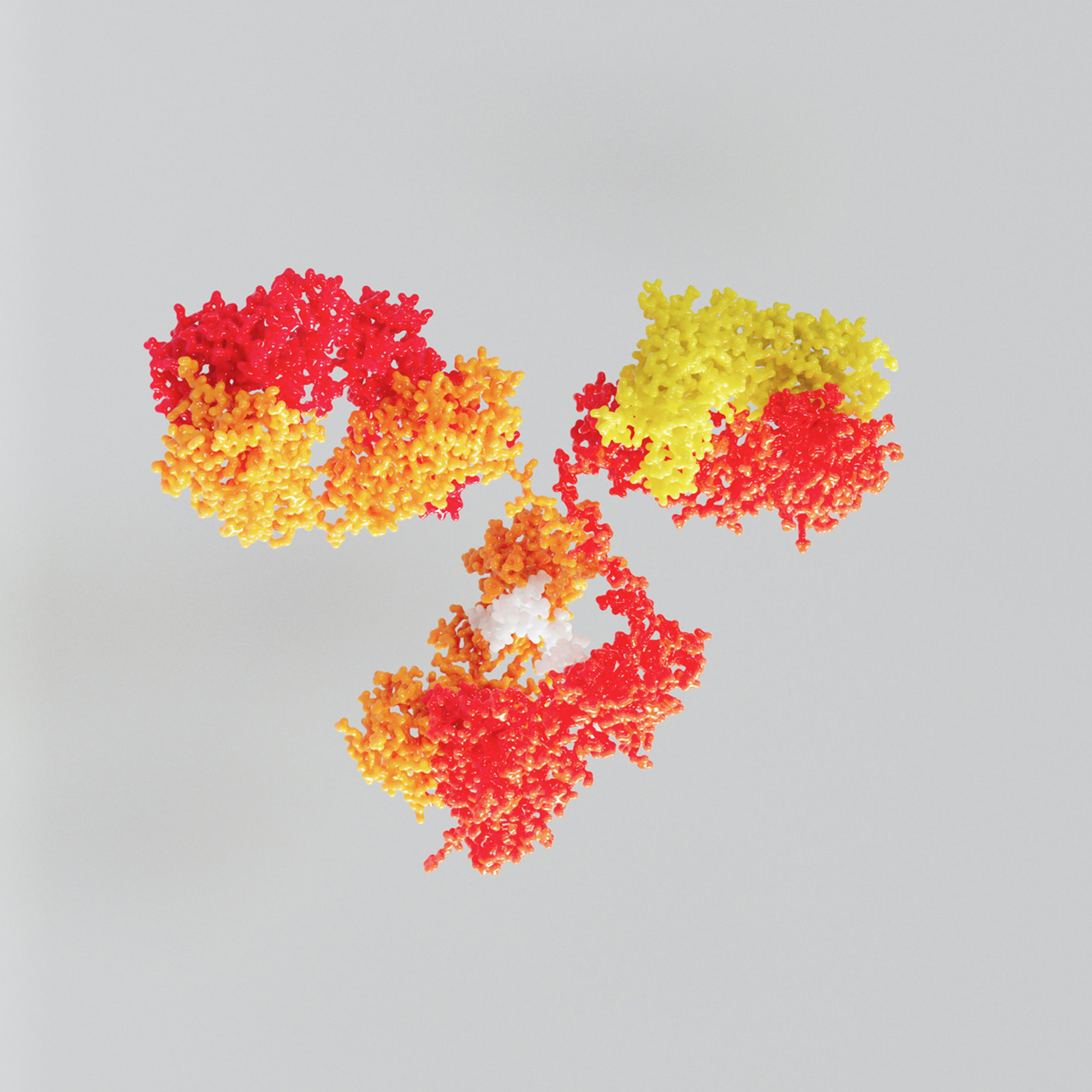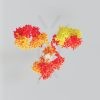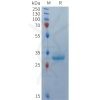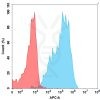| Clone ID | DM4 |
|---|---|
| Target | |
| Synonyms | TNFRSF17 |
| Host Species | Rabbit |
| Description | Anti-BCMA bispecific antibody(DM4) |
| Delivery | In Stock |
| Uniprot ID | Q02223 |
| IgG type | Rabbit scfv |
| Clonality | Monoclonal |
| Reactivity | Human |
| Applications | Flow Cyt; MM Tumor cell killing |
| Recommended Dilutions | Flow Cyt 1:100; MMTumor cell killing |
| Purification | Purified from cell culture supernatant by affinity chromatography |
| Formulation & Reconstitution | Lyophilized from sterile PBS, pH 7.4. Normally 5 % – 8% trehalose is added as protectants before lyophilization. Please see Certificate of Analysis for specific instructions of reconstitution. |
| Storage & Shipping | Store at -20°C to -80°C for 12 months in lyophilized form. After reconstitution, if not intended for use within a month, aliquot and store at -80°C (Avoid repeated freezing and thawing). Lyophilized proteins are shipped at ambient temperature. |
| Background | BiTE bispecific antibody is an Engineered fusion protein constructed from two single-chain variable fragments (scFvs) of different monoclonal antibodies. One of the scFvs will be constructed from an anti-CD3 monoclonal antibody; and the other scFv fragment which linked by a linker region will be made from an anti-Tumor cell specific monoclonal antibody.The B-cell maturation protein (BCMA or BCM) is a member of the TNF-receptor superfamily. This receptor is preferentially expressed in mature B lymphocytes; and may be important for B cell development and autoimmune response. This receptor has been shown to specifically bind to the tumor necrosis factor (ligand) superfamily; member 13b (TNFSF13B:TALL-1:BAFF); and to lead to NF-kappaB and MAPK8:JNK activation. This receptor also binds to various TRAF family members; and thus may transduce signals for cell survival and proliferation. [provided by RefSeq; Jul 2008] |
| Usage | Research use only |
| Conjugate | Unconjugated |
| DIMA Disclaimer | All DIMA recombinant antibodies are genuinely generated by DIMA Biotech. They are all under patent application. Any protein sequencing or reverse engineering attempt is prohibited. We are actively scrutinizing all patent application to ensure no IP infringement. |
Anti-BCMA bispecific antibody(DM4)
Price: 10μg ¥690.00 ; 50μg ¥2280.00 ; 100 μg ¥3066.00 ; 500 μg ¥9198.00
Product Data Dima FAQ
图片 Dima FAQ
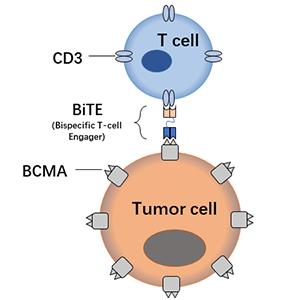
Figure 1. The basic principle of BiTE cell killing assay. The BiTE molecule can effectively bring T cells to tumor target cells and stimulate tumor cell killing activity of T cells.
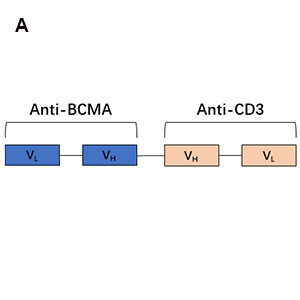
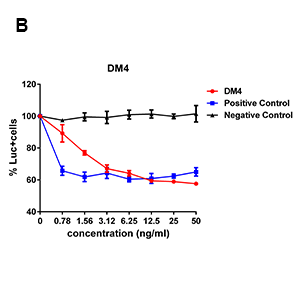
Figure 2. A: The scheme of Anti-BCMA BiTE molecule. B: Tumor cell killing assay. NCI-H929 cells (stably transfected with luciferase), were incubated with freshly isolated human PBMC, and different concentration of BiTE antibodies constructed from rabbit Anti-Human BCMA/TNFRSF17 Clone DM4 (red line), or BB2121 originated huC11D5.3 clone (blue line) or a no BCMA binding clone as negative control (black line). After 48hrs incubation, the viable NCI-H929 tumor cells were measured by luciferase activity assay.
相关产品
ECD Proteins
SKU: PME100035 Target: BCMA
Price: 10μg ¥909.00 ; 50μg ¥3333.00 ; 100 μg ¥4999.00
Monoclonal Antibodies
SKU: DME100006B Target: BCMA
Application: ELISA; Flow Cyt
Price: 10μg ¥1030.00 ; 50μg ¥3380.00 ; 100 μg ¥6080.00 ; 500 μg ¥19880.00
ECD Proteins
SKU: PME101367 Target: BCMA
Price: 10μg ¥690.00 ; 50μg ¥2500.00 ; 100μg ¥3699.00
Monoclonal Antibodies
SKU: DME100004P Target: BCMA
Application: Flow Cyt
Price: 100 test ¥3880.00
Biosimilar reference antibodies
SKU: BME100016 Target: BCMA
Application: ELISA; Flow Cyt
Price: 50 μg ¥800.00 ; 100 μg ¥1500.00

